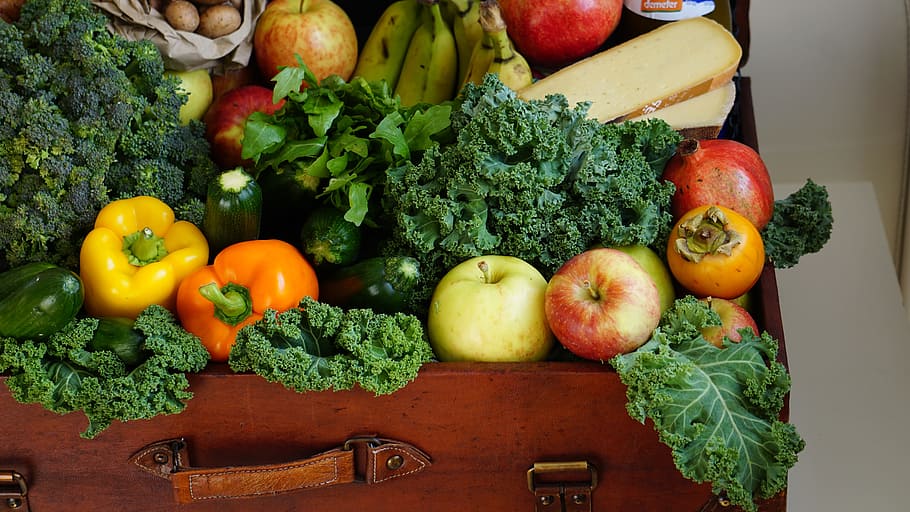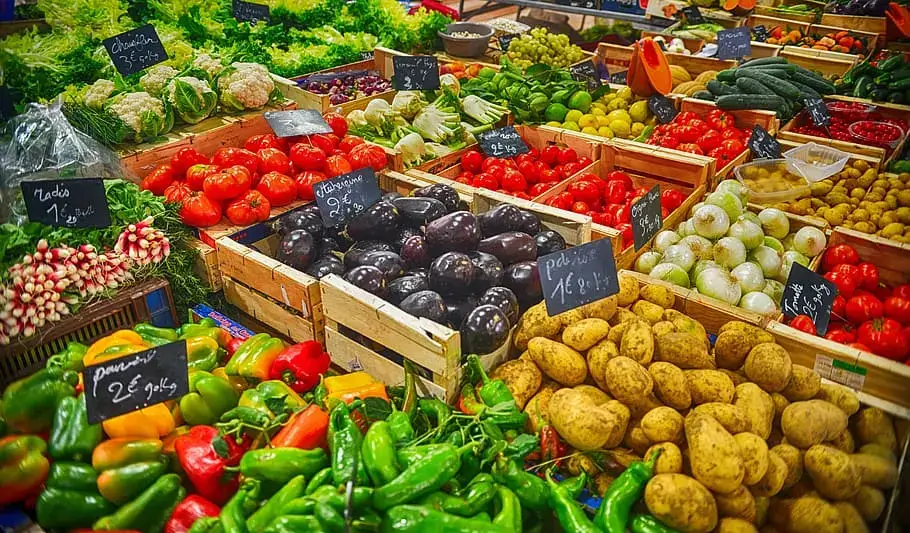
What Are Organic Foods And Why Choose Them?
By Steven Green | August 1, 2023
What are organic foods and why choose them?
Imagine walking through a vibrant farmers market, the air filled with the earthy aroma of freshly harvested produce. The brightly colored fruits and vegetables catch your eye, their natural beauty untouched by synthetic pesticides or GMOs.
As you reach for an apple, you can’t help but wonder: what makes organic foods so special? Well, we’re here to answer that question and more. In this article, we will explore the world of organic foods and why choosing them can have a profound impact on our health and the environment.
We’ll delve into the benefits of organic farming, uncover what it means to be certified organic, and examine the health advantages that come with consuming organic foods. Additionally, we’ll shed light on how supporting local organic farmers can benefit both our communities and our planet.
So join us as we debunk myths and unravel the facts about organic foods – because making informed choices is key to achieving mastery in living a healthy lifestyle.
- Key Takeaways
- The Benefits of Organic Farming
- Understanding Organic Certification
- Health Benefits of Organic Foods
- Environmental Impact of Organic Farming
- How to Identify Organic Foods
- Supporting Local Organic Farmers
- Debunking Myths about Organic Foods
- Frequently Asked Questions
- Are organic foods more nutritious than conventional foods?
- How can I be sure that a product labeled as “organic” is truly organic?
- Are organic foods more expensive than conventional foods?
- Can organic farming be harmful to the environment in any way?
- What are some common misconceptions about organic foods?
- Conclusion
Key Takeaways
- Organic foods can be identified through labeling requirements, traceability systems, and third-party certifications, such as USDA Organic and EU Organic.
- Consumer awareness is important in understanding the significance of organic foods and educating oneself about certification logos and labeling requirements.
- Supporting local organic farmers contributes to a sustainable food system, supports small businesses, and preserves biodiversity while reducing greenhouse gas emissions.
- Choosing locally grown organic produce offers freshness, superior flavor, and nutritional value compared to conventionally grown produce.
SUBSCRIBE
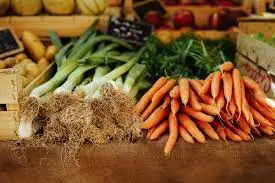
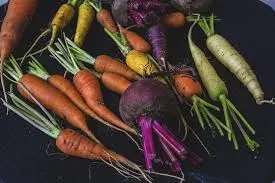
The Benefits of Organic Farming
Organic farming brings forth a bounty of nutrient-rich produce, creating a vibrant tapestry of health and sustainability. One of the key benefits of organic farming is its positive impact on soil fertility. Organic farmers prioritize the use of natural fertilizers such as compost and manure, which enrich the soil with essential nutrients. This approach helps maintain soil structure, promoting long-term fertility and supporting healthy plant growth.
Furthermore, organic farming plays a crucial role in reducing the use of chemical pesticides. Instead, organic farmers rely on integrated pest management strategies that utilize beneficial insects, crop rotation, and other methods to control pests naturally. By minimizing pesticide usage, organic farming not only protects the environment but also ensures that consumers are not exposed to harmful residues.
Another advantage of organic farming is its ability to enhance biodiversity. Organic farms provide habitats for various plant species and wildlife by avoiding monoculture practices commonly found in conventional agriculture. This diversity creates a balanced ecosystem where different organisms thrive together, contributing to pollination and natural pest control.
Moreover, organic farming contributes to improved water quality. Since it avoids synthetic fertilizers and pesticides that can leach into waterways, organic agriculture helps prevent contamination and maintains the purity of water sources.
Lastly, organic farming plays a vital role in climate change mitigation. By using sustainable techniques like cover cropping and crop rotation, organic farms sequester carbon dioxide from the atmosphere into the soil. This process helps reduce greenhouse gas emissions while building resilient agricultural systems that can better withstand extreme weather events associated with climate change.
Understanding organic certification is essential for consumers who want assurance about the authenticity of their food choices without relying solely on packaging claims or marketing tactics.
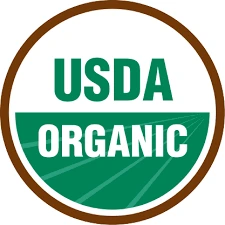

Understanding Organic Certification
Understanding the certification process can help you make informed decisions about what you put on your plate. When it comes to organic foods, there are specific standards that must be met in order for a product to receive organic certification. These standards ensure that the food has been produced using environmentally friendly practices and without the use of synthetic pesticides, fertilizers, or genetically modified organisms (GMOs).
The certification process begins with farmers and food producers following strict organic farming practices for a designated period of time. This includes maintaining healthy soil, conserving water resources, and promoting biodiversity. Once these practices have been implemented, an inspection process is carried out by an accredited certifying agency to verify compliance with organic standards.
In addition to meeting agricultural requirements, there are also labeling requirements that must be met for a product to be certified as organic. These include clear and accurate labeling indicating the percentage of organic ingredients present in the product.
Once a product has successfully gone through this certification process and meets all the necessary criteria, it can display the USDA Organic seal. This seal serves as an assurance to consumers that they are purchasing a product that has been produced in accordance with strict organic standards.
Understanding the certification process provides confidence in knowing that when you see the USDA Organic seal on a product, it has undergone rigorous inspections and adheres to stringent guidelines. It gives you peace of mind knowing that what you’re putting on your plate is not only good for your health but also supports sustainable farming practices.
Now let’s explore the health benefits of organic foods.
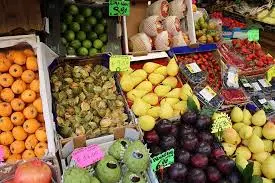
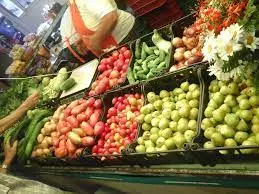
Health Benefits of Organic Foods
You’ll be amazed at the incredible array of health benefits that await you when you opt for organic options. Organic foods offer numerous nutritional advantages, making them a wise choice for those seeking optimal health. Here are three reasons why choosing organic can have a positive impact on your well-being:
- Nutritional advantages: Organic foods often contain higher levels of essential nutrients compared to conventionally grown counterparts. Research has shown that organic fruits and vegetables tend to have more vitamins, minerals, and antioxidants, which are crucial for maintaining good health and preventing diseases.
- Reduced pesticide exposure: One of the key benefits of organic foods is their limited pesticide residue. Conventionally grown crops are often treated with synthetic pesticides, which can leave behind harmful residues. By choosing organic, you can significantly reduce your exposure to these potentially toxic chemicals.
- Enhanced taste: Organic foods have been praised for their superior flavor and quality. Many people find that organically grown produce tastes fresher and more vibrant compared to conventionally grown options. This is because organic farming practices prioritize soil health, resulting in richer flavors and textures.
In addition to these health benefits, opting for organic foods also promotes improved animal welfare by supporting farming practices that prioritize the ethical treatment of animals and minimize stress on livestock.
Consuming organic products may also contribute to a lower risk of antibiotic resistance as antibiotics are rarely used in organic farming practices.
Transitioning into our next section about the environmental impact of organic farming…
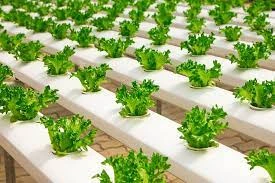
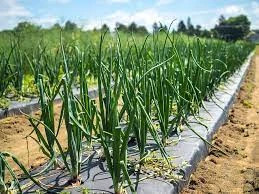
Environmental Impact of Organic Farming
When we opt for organic options, it’s not just our health that benefits – the environment also reaps the rewards of organic farming practices.
Organic farming promotes soil health by using natural methods to maintain its fertility and structure. Instead of relying on synthetic fertilizers, organic farmers use compost, animal manure, and crop rotation to nourish the soil. This helps to improve soil biodiversity and reduce erosion, ensuring long-term sustainability.
Another environmental benefit of organic farming is reduced pesticide use. Organic farmers avoid using synthetic pesticides, which can have detrimental effects on ecosystems and human health. Instead, they rely on natural pest control methods such as beneficial insects, crop rotation, and physical barriers.
By minimizing pesticide use, organic farming promotes biodiversity conservation by providing a healthier habitat for pollinators and other wildlife. Organic farming also contributes to water quality improvement. Since organic farms do not use synthetic fertilizers or pesticides that can contaminate water sources, they help prevent harmful runoff into rivers, lakes, and groundwater.
This protects aquatic life and ensures clean drinking water for both humans and animals. Additionally, organic farming has a lower carbon footprint compared to conventional agriculture practices. By avoiding the use of synthetic fertilizers and reducing pesticide applications, organic farms contribute less to greenhouse gas emissions. Furthermore, practices like composting help sequester carbon in the soil.
In conclusion, choosing organic foods not only benefits our health but also has positive impacts on the environment. Organic farming promotes soil health, reduces pesticide use for biodiversity conservation purposes while improving water quality and lowering carbon footprints.
Transitioning into the subsequent section about ‘how to identify organic foods,’ let’s now explore some guidelines on how we can identify these environmentally friendly options without compromising our objectives.
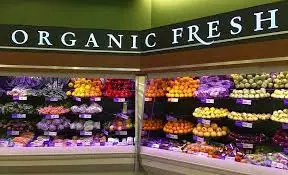
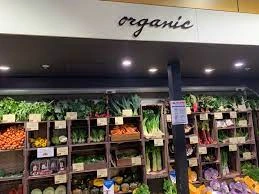
How to Identify Organic Foods
To spot environmentally friendly options at the grocery store, keep your eyes peeled for products that are like shining gems in a sea of conventional choices. Identifying organic foods can be made easier through labeling requirements, traceability systems, and third-party certifications. These tools provide consumers with the assurance that the product they are purchasing meets specific organic farming practices.
One way to identify organic foods is by looking for labels that indicate they are certified organic. In many countries, such as the United States and European Union, there are strict labeling requirements for organic products. These labels often include the words ‘certified organic’ along with a logo or seal from an accredited certification body.
Traceability systems also play a crucial role in identifying organic foods. These systems track the entire journey of a product from farm to table, allowing consumers to verify its authenticity. By scanning QR codes or using other technologies, shoppers can access information about where and how their food was produced.
Third-party certifications add another layer of credibility to identifying organic foods. Organizations such as the USDA Organic or EU Organic ensure that farmers follow specific guidelines for organic farming practices. They conduct regular inspections and audits to uphold these standards and provide certification seals on qualifying products.
Consumer awareness is key when it comes to identifying organic foods. Educating yourself about different certification logos, understanding labeling requirements, and knowing which farming practices align with your values will empower you to make informed choices.
By familiarizing ourselves with these identification methods and supporting local organic farmers who adhere to these principles, we can contribute to a more sustainable food system without compromising quality or taste.

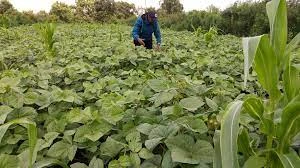
Supporting Local Organic Farmers
Supporting local organic farmers is a fantastic way to contribute to a more sustainable food system and ensure that you are getting fresh, high-quality produce. Community engagement plays a crucial role in supporting these farmers. By purchasing their products, we not only support small businesses but also create a sense of community around sustainable practices.
These farmers often hold events such as farm tours or workshops, allowing us to learn about their methods and build relationships with the people who grow our food. In addition to community engagement, choosing locally grown organic produce has numerous environmental benefits. Local farmers typically employ sustainable practices such as crop rotation, natural pest control, and soil conservation techniques.
These methods help preserve biodiversity, protect water sources from pollution, and reduce greenhouse gas emissions associated with long-distance transportation. Moreover, supporting local organic farmers has a significant economic impact on our communities. When we buy directly from these farmers at farmers markets or through community-supported agriculture programs (CSAs), more money stays within the local economy.
This supports jobs and helps create a resilient food system that is less dependent on large-scale industrial agriculture. One of the most compelling reasons to choose locally grown organic produce is the freshness it offers. By buying directly from farms in our area, we can enjoy fruits and vegetables that have been picked at peak ripeness and delivered straight to our tables.
The flavor and nutritional value of fresh produce are unmatched compared to those that have been shipped long distances or stored for extended periods. Now that we understand why supporting local organic farmers is important for both sustainability and quality produce, let’s transition into the subsequent section about debunking myths about organic foods…


Debunking Myths about Organic Foods
Dispelling misconceptions about the benefits of going organic, it’s time to debunk the myths surrounding sustainable and healthy eating habits.
Organic foods have gained popularity in recent years due to their perceived health benefits and environmental sustainability. However, there are several misconceptions that often surround this topic. Let’s take a closer look at some of these myths:
- Deceptive Marketing: One common myth is that all products labeled as ‘organic’ are automatically healthier or more nutritious than their conventional counterparts. While organic farming practices do promote sustainability, it is important to note that not all organic products are created equal. It is essential for consumers to read labels carefully and understand what they are purchasing.
- Pesticide Residues: Another myth is that organic foods are completely free from pesticide residues. While organic farming does minimize the use of synthetic pesticides, it does not mean that organic produce is entirely pesticide-free. Organic farmers may still use naturally derived pesticides, which can leave residue on crops.
- Nutritional Value: Some people believe that organic foods have significantly higher nutritional value compared to conventionally grown foods. However, scientific studies comparing the nutrient content of organic and conventional produce have shown inconsistent results. The nutritional differences between the two types of food are generally minimal.
- Affordability: Many individuals assume that choosing organic means breaking the bank. While it is true that some organic products can be more expensive than their conventional counterparts, this isn’t always the case. With increasing consumer demand for organics, prices have become more competitive in recent years.
Dispelling these myths helps us make informed decisions about our food choices. It’s crucial for consumers to understand that while there are certainly advantages to choosing organic foods, such as supporting sustainable agriculture practices and reducing exposure to synthetic pesticides, exaggerated claims should be approached with caution.
By being well-informed and discerning shoppers, we can navigate through deceptive marketing tactics and make choices based on accurate information about affordability, nutritional value, and consumer demand.
Frequently Asked Questions
Are organic foods more nutritious than conventional foods?
Organic foods may not be significantly more nutritious than conventional foods, but they offer nutritional benefits due to their pesticide-free farming practices. Choosing organic can have health advantages and reduce environmental impact.
How can I be sure that a product labeled as “organic” is truly organic?
To ensure that a product labeled as ‘organic’ is truly organic, consumers can look for organic certification logos on the packaging. These logos indicate that the product has undergone third-party testing to meet strict organic standards, providing assurance and consumer awareness.
Are organic foods more expensive than conventional foods?
Organic foods may be more expensive than conventional foods due to cost comparison, consumer perception, and market demand. However, their production methods and potential health benefits make them a worthwhile choice for those seeking mastery in nutrition.
Can organic farming be harmful to the environment in any way?
Negative impacts of organic farming include pesticide use, which can harm ecosystems and wildlife. Soil degradation may occur due to reduced synthetic fertilizer use, leading to decreased crop yields. Biodiversity loss and water pollution are also potential concerns in some cases.
What are some common misconceptions about organic foods?
Misconceptions about organic foods include the belief that they are healthier, have no pesticide residues, and are always better for the environment. While organic farming practices can reduce certain risks, consumer demand is also driven by misinformation.
Conclusion
In conclusion, choosing organic foods is like embracing a symphony of goodness for our bodies and the environment. By supporting local organic farmers, we become stewards of a harmonious ecosystem that nurtures both plants and animals.
Organic certification ensures that nature’s finest ingredients are cultivated without harmful chemicals or genetic modifications. The health benefits are undeniable, as these clean and pure foods nourish us from within.
So let us dance to the tunes of nature’s orchestra, savoring the delicious melody of organic goodness.

